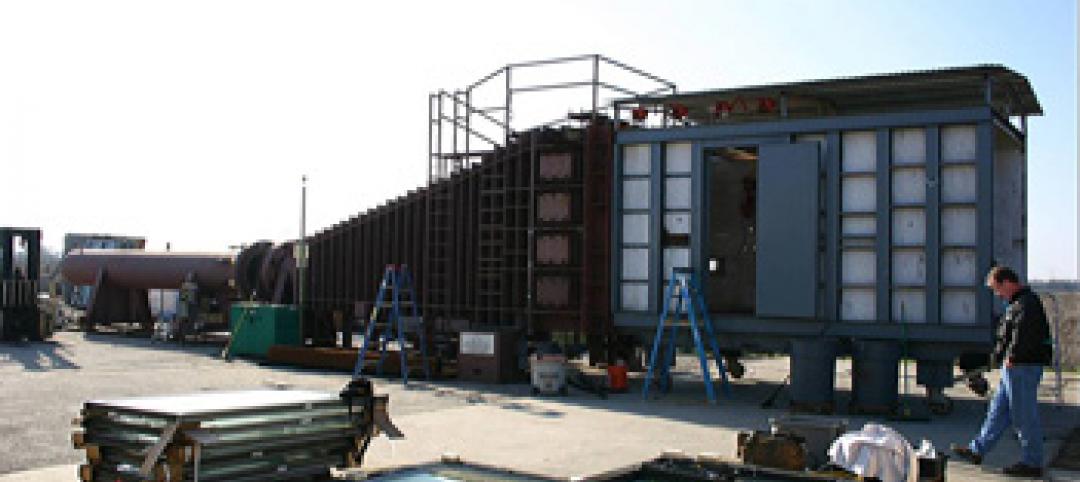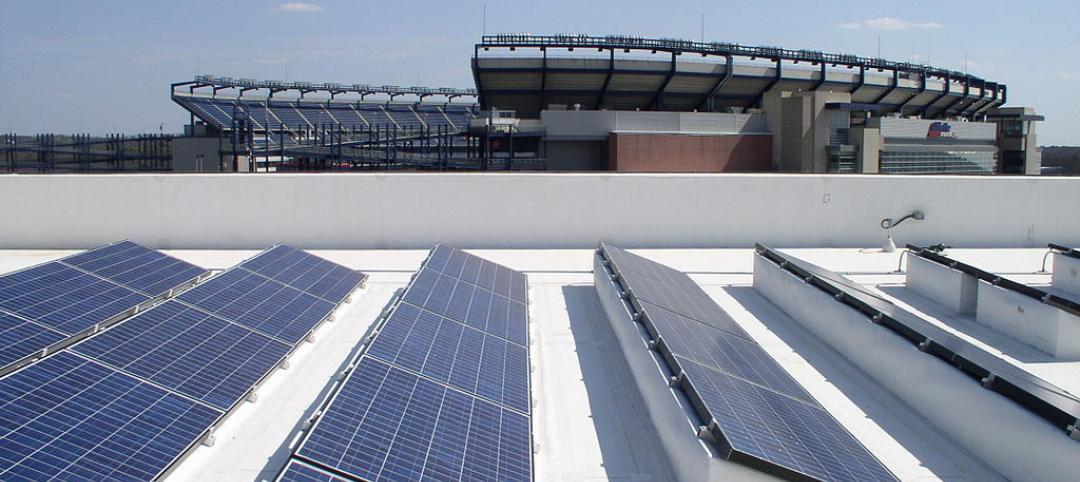Commercial property owners should commit to greenhouse gas (GHG) reduction—a strategy that reaps financial benefits and prevents buildings from becoming stranded assets, according to an energy efficiency consultant writing in GlobeSt.
A systematic drive to reduce emissions across the portfolio will garner savings on energy and water, as well as on levies for exceeding carbon emissions standards enacted by local governments. Decarbonization can avoid “stranded assets … properties that will be exposed to the risk of early economic obsolescence due to climate change because they will not meet future regulatory efficiency standards or market expectations.”
The first step is to set minimum standards for the entire portfolio and efficiency goals for individual properties. Portfolio standards could be performance based (e.g., 10% reduction of all assets by 2030), or prescriptive based (e.g., 100% LED lighting at all assets by 2025).
An energy and water audit, a comprehensive analysis of the property’s energy and water consumption using the ASHRAE Energy Audit Standards, should be conducted at each site. The audit measures energy and water usage, identifies property conditions that may cause excessive use, and provides efficiency measures to improve energy and water efficiency.
Other GHG reduction measures include building automation and controls, retro-commissioning, sourcing green energy from utilities, fully electrifying buildings, and integrating renewable energy systems into the property.
Related Stories
| Nov 26, 2014
Colorado must fix construction defects law, Denver Post says
Colorado's “vexing construction defects law” has hampered the building of new condominiums in the state, according to an editorial in the Denver Post.
| Nov 26, 2014
Cheyenne, Wyoming City Council kills downtown design standards proposal
The Cheyenne, Wyoming City Council voted down a measure that would have implemented design standards for new construction and building additions downtown.
| Nov 26, 2014
ASTM International develops first product category rules for asphalt roofing industry
The Asphalt Roofing Manufacturers Association (ARMA) and ASTM International have developed Product Category Rules (PCR) for asphalt roofing in North America.
| Nov 26, 2014
International Green Construction Code will include option for outcome-based approach
The outcome-based approach requires the building owner to provide the building’s utility bills for a 12-month period within three years.
| Nov 20, 2014
Pentagon is reviewing hospital construction standards
An independent review panel of military specialists met with healthcare leaders Nov. 12 to consider whether construction standards for medical centers should be strengthened to align with industry best practices.
| Nov 20, 2014
ConsensusDocs releases first standard agreement for commissioning contracting
The new standard contract provides a contractual vehicle for owners to save significant money from operation and maintenance costs regarding energy performance.
| Nov 20, 2014
Revamped zoning is transforming several New Jersey downtowns
The zoning policy shift could produce the biggest transformation of North New Jersey’s downtowns since the arrival of malls pulled shoppers away from town centers in the 1960s and 1970s.
| Nov 20, 2014
ANSI approves 2015 Wood-Frame Construction Manual standard
The American Wood Council's 2015 “Wood-Frame Construction Manual for One- and Two-Family Dwellings” (WFCM ) has been approved as an American National Standard by the American National Standards Institute (ANSI).
| Nov 17, 2014
AAMA releases new blast hazard mitigation specifications for vertical fenestration systems
This document provides a guide for manufacturers, architects/specifiers, contractors, and building owners for specifying types of systems and services to meet the requirements of blast hazard mitigation.
| Nov 17, 2014
National Roofing Contractors Assn. offers guide for LEED v4 provisions
National Roofing Contractors Association has released LEED v4: Roofing-related Provisions, a document that examines the roofing-related provisions of LEED v4.












